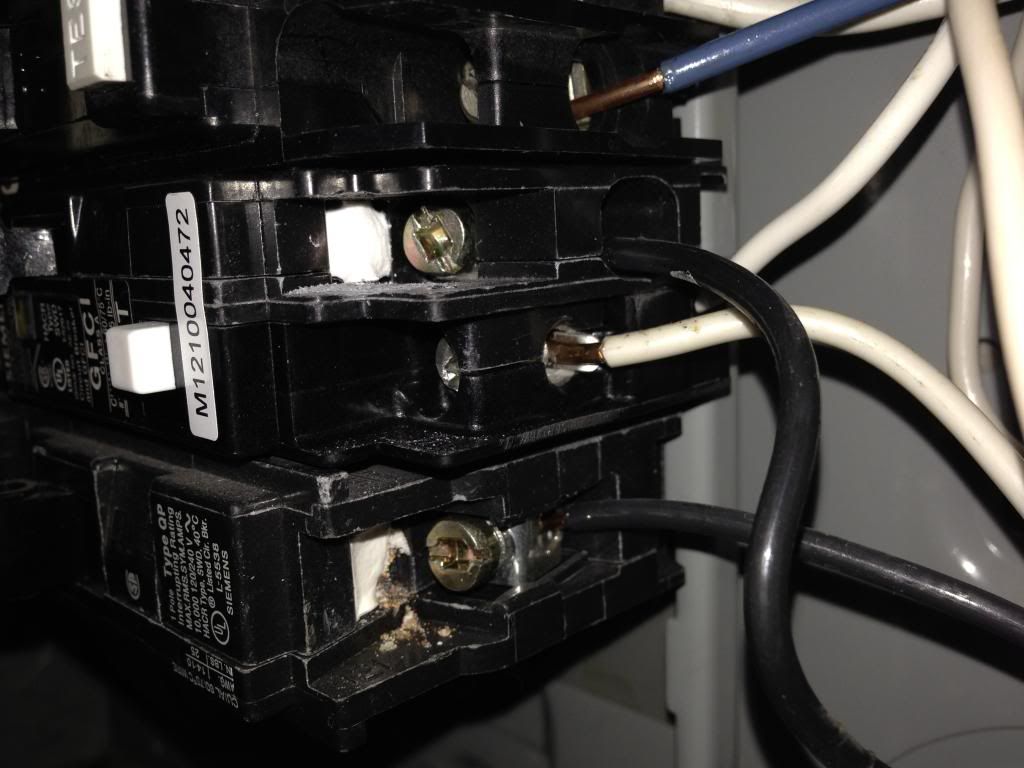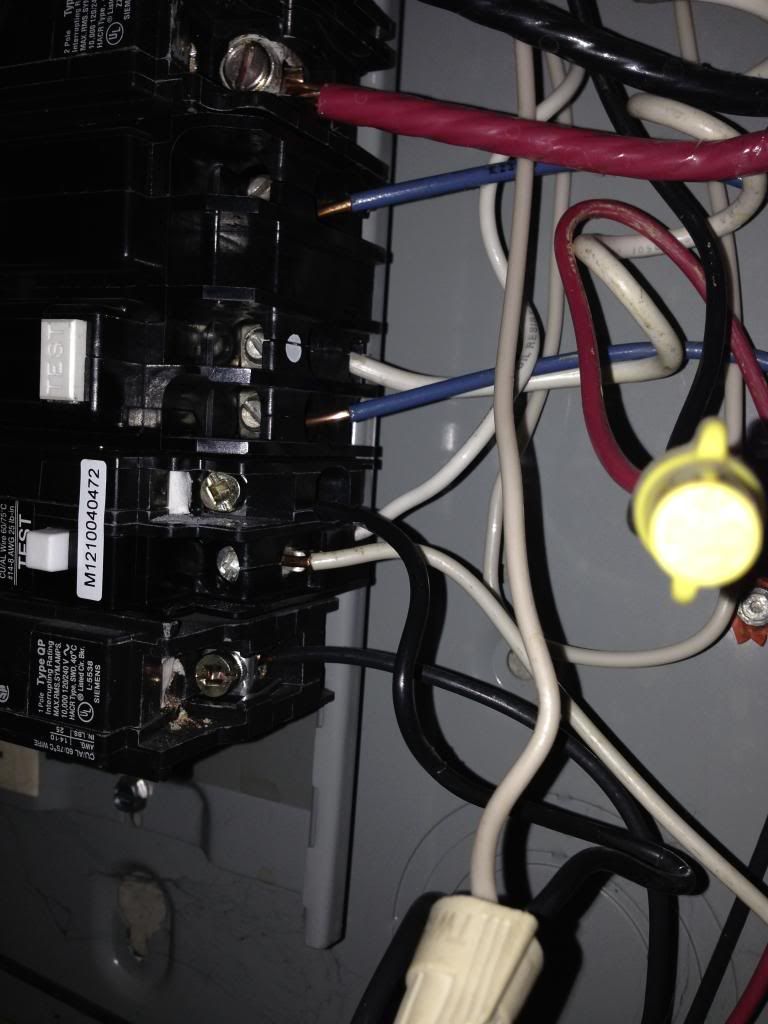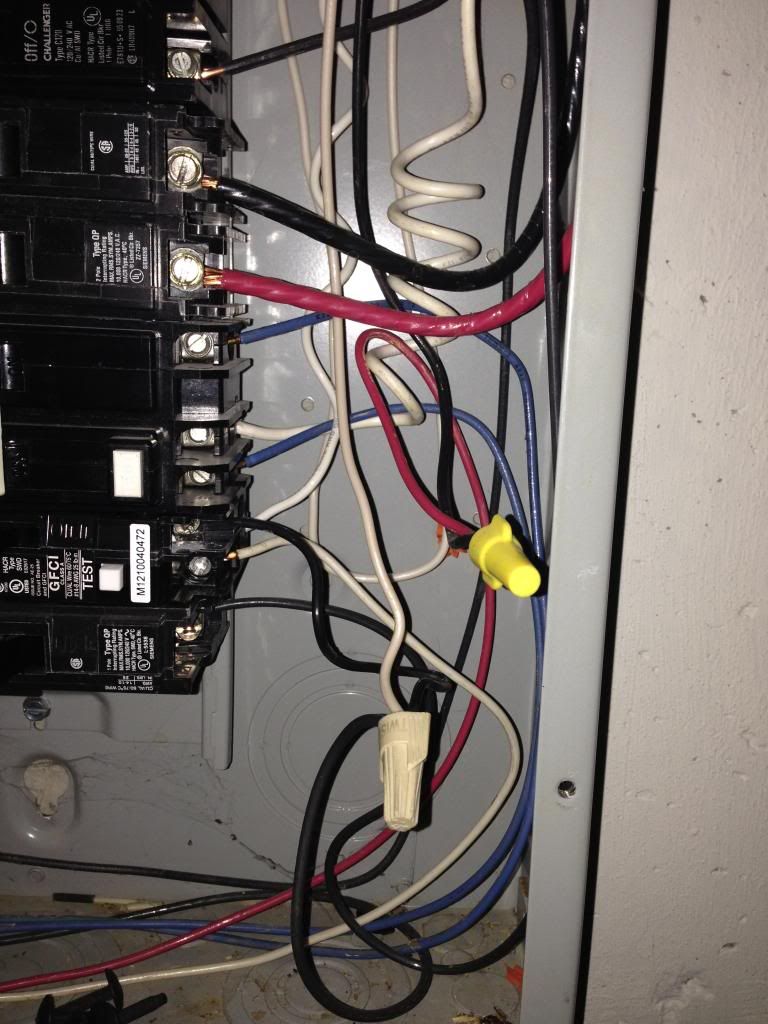He guys, I will be taking on a new project this summer... One I have had since I bought this house. I have a GFCI breaker that trips when I turn on the switch...
Best I know the circuit goes as follows...
20 amp breaker at the box (inside my house) goes to a light switch inside my house, then out to my equipment pad. On this line I have 5 lights in my retaining wall and my pool light on that switch. Also on the same circuit I have my pool cleaner and heater as well, but they have there own switches at the pad.. (I think that's all).
When I turn on the heater, or pool cleaner, I have no problems at all... when I flip the switch to turn on my lights, it will trip the breaker (every time). I can leave the light switch in the on position and go to the breaker and turn it on and everything stays on for as long as I want... I can turn it off at the light switch as well... but agn it will trip if I turn it on.
I have pulled the light out of the pool (last year) and it was dry... some corrosion inside though but I did try to clean it. I have checked each light in the retaining wall and see no sign of moisture as well... to take that a step further I removed each and coated the wire at the connections with liquid electrical tape, and then used marine grade silicone to seal the inside where the wire exited the box. This was my attempt last year...
This year, here I am with he same goofball setup... looking for help from you folks that may have seen something like this before...
I should also note:
I have replaced the GFCI.
I did replace all the bulbs in the lights (pool included)
I did open up the junction box and check all connections, the pool light is stranded and does tie into hard copper... I cleaned or cut back all of them. I am unsure if there is another junction box to look at.
I did remove each item in the circuit to try to isolate the light or path... and I don't remember that showing me anything (last year).
I want to mess with this a bit this weekend, just looking for ideas.
Best I know the circuit goes as follows...
20 amp breaker at the box (inside my house) goes to a light switch inside my house, then out to my equipment pad. On this line I have 5 lights in my retaining wall and my pool light on that switch. Also on the same circuit I have my pool cleaner and heater as well, but they have there own switches at the pad.. (I think that's all).
When I turn on the heater, or pool cleaner, I have no problems at all... when I flip the switch to turn on my lights, it will trip the breaker (every time). I can leave the light switch in the on position and go to the breaker and turn it on and everything stays on for as long as I want... I can turn it off at the light switch as well... but agn it will trip if I turn it on.
I have pulled the light out of the pool (last year) and it was dry... some corrosion inside though but I did try to clean it. I have checked each light in the retaining wall and see no sign of moisture as well... to take that a step further I removed each and coated the wire at the connections with liquid electrical tape, and then used marine grade silicone to seal the inside where the wire exited the box. This was my attempt last year...
This year, here I am with he same goofball setup... looking for help from you folks that may have seen something like this before...
I should also note:
I have replaced the GFCI.
I did replace all the bulbs in the lights (pool included)
I did open up the junction box and check all connections, the pool light is stranded and does tie into hard copper... I cleaned or cut back all of them. I am unsure if there is another junction box to look at.
I did remove each item in the circuit to try to isolate the light or path... and I don't remember that showing me anything (last year).
I want to mess with this a bit this weekend, just looking for ideas.





